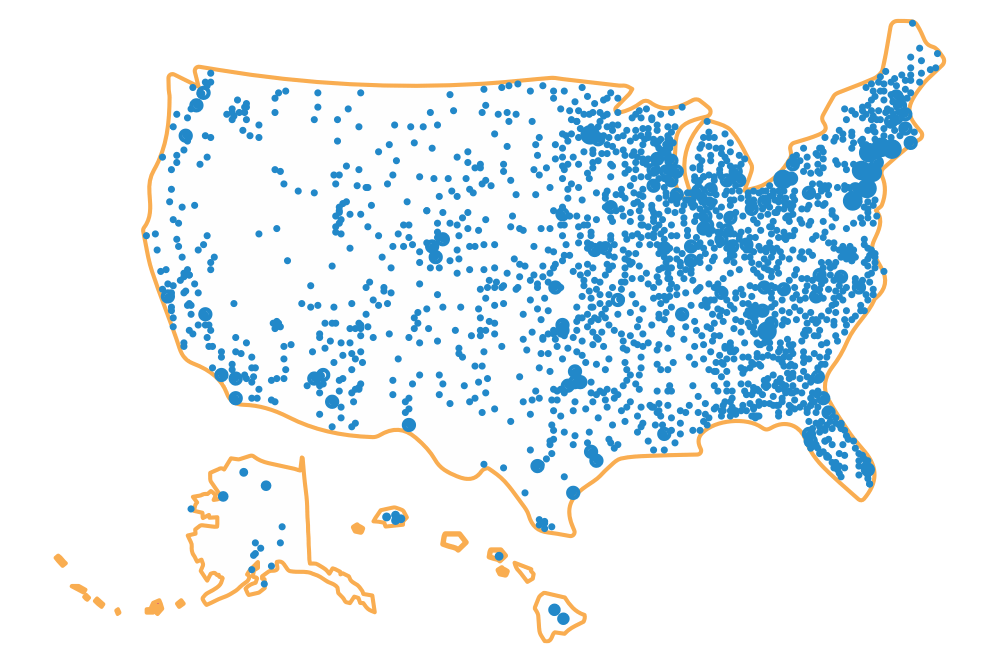GUEST BLOG by Kathryn Flynn published with permission. Article ran Sept. 16, 2015, on SavingforCollege.com.
According to 2015 T. Rowe Price's Family Financial Trade-offs study, 45 percent of families who are saving for college are doing so with a general savings account. In fact, only 31 percent of those surveyed are taking advantage of the benefits of 529 college savings plans.
With events like 529 Day held in May and College Savings Month campaign in September, the college savings industry has been working hard to educate families on the tax advantages and other benefits these plans offer. Unlike traditional investment accounts, earnings in a 529 plan grow tax-free and are not taxed at withdrawal as long as the funds are used toward qualified educational expenses. Yet parents and grandparents are still hesitant because they just don’t believe 529 plans are right for their child.
We couldn’t disagree more. No matter what “type” of student you’re saving for, a 529 plan is generally the best way to plan for college expenses.
1. The Athlete
- NCAA athletic scholarships are only awarded to about 2 percent of high school students and typical awards are under $11,000.
- According to the College Board, the average one-year cost to attend a four-year public college is about $23,000 so most scholarships won’t even cover one half of the cost of one year.
- Even if your child is a star athlete it might be a good idea to start saving with a 529 plan to cover the difference in what an athletic scholarship would pay versus the total tuition cost.
- If you end up saving more than you need and have to make a nonqualified withdrawal, you can take the principal (the amount you contributed) without incurring taxes or penalties.
- What’s more, there is an exception to the penalty tax rule in the case of scholarships – withdrawals made up to the amount of the tax-free scholarship will not be subject to the 10% penalty tax. The earnings portion, however, will still incur income tax similar to a traditional investment vehicle.
RELATED: Scoring an athletic scholarship - What you need to know
2. The Scholar
- Similar to athletes, students who excel academically will likely earn some form of scholarship award.
- The scholarship exception also applies for academic scholarships, so if you saved more than you needed in a 529 plan you can withdraw the contribution portion (up to the amount of the scholarship amount) without incurring a penalty tax.
- If your child is in the running for an academic scholarship they likely have good chance of getting accepted into a prestigious school. However, the average annual total cost of attending one of Forbes’s 2015 top 50 colleges is almost $62,000 so supplemental 529 savings can definitely come in handy.
- For a chance of getting any amount of academic scholarship your child will likely need to graduate in the top five to ten percent of their class, and that may not be for a full ride.
- 529 funds can also sometimes be withdrawn tax-free if they are spent on room and board costs, books and supplies and equipment required for course enrollment.
RELATED: 9 tips on getting into the Ivy League
3. The Legacy
- Grandparents who are looking to leave a meaningful legacy for their grandchildren should consider 529 plans as a way to pay for their grandchildren’s college education.
- Contributions to 529 accounts are considered gifts for tax planning purposes, which means amounts up to $14,000 each year per individual will qualify for the annual gift tax exclusion.
- What’s more, if you make a contribution between $14,000 and $70,000 for a beneficiary you can elect to treat the contribution as made over a five-year period for gift tax purposes.
- This strategy is often suggested for those who are trying to reduce estate taxes because even though the account remains in your name, the assets will leave your estate.
- Best of all, although the assets have left your estate you retain control and can take them back if needed. Keep in mind that if you do revoke the account its value will come back to your estate and be subject to taxes.
RELATED: 8 reasons why grandparents love 529 plans
4. Budget-Conscious
- Students with limited funds to pay for college may be concerned with the effect 529 savings will have on their chances of getting financial aid.
- Savings in a 529 plan will affect need-based financial aid eligibility, but they are treated as parental assets.
- Parental assets are assessed at a maximum 5.64% rate in determining a family’s Expected Family Contribution (EFC), compared to a rate of 20% on non-529 assets owned by the student.
- That means if you have $25,000 saved in a 529 account, the student’s eligibility for federal financial aid will decrease by $1,410. If the student saved the same amount in a regular savings or investment account, their financial aid eligibility would decrease by $5,000.
- Some financial aid is also given in the form of loans that need to be repaid after graduation. In this case, it is more cost effective to save in advance with a 529 plan that will earn interest instead of borrowing and paying interest on a loan.
RELATED: Yes, your 529 plan will affect financial aid
5. Non-traditional Students
- Campus life at a four-year university isn’t for everyone, but most careers do require some sort of education or training.
- 529 plan savings can be withdrawn tax-free to pay for expenses relating to a variety of post-secondary schools, including vocational and technical schools.
- According to the College Savings Foundation’s sixth annual “How Youth Plan to Fund College” survey, 42 percent of students think of career schools the same way they think of traditional four-year colleges.
- Many students are also choosing to attend a two-year community college and moving on to a larger school to obtain a bachelor's degree as part of a strategy to keep tuition costs down.
- There is also an exception to the penalty tax rule regarding non-qualified 529 plan withdrawals if a student enrolls in a U.S. Military Academy, such as West Point. The amount contributed can be withdrawn tax free, and the earnings portion will avoid the 10% penalty and only be subject to income tax.
RELATED: Who can open a 529 plan?
Kathryn Flynn joined Savingforcollege.com in 2014 as a Financial Writer. She is a firm believer in the need for financial awareness and education. Her specialties include creating consumer friendly content related to college savings and personal finance for families. She has worked in the investment industry for over 10 years and brings a wealth of knowledge to our readers. Kathryn received her MBA from DePaul University in 2007 and currently resides in the suburbs of Chicago with her husband and three children. In her spare time, she enjoys running and spending time with her family.








